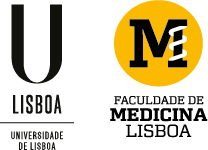The Centre for Evidence Based Medicine (CEMBE) is a structural unit of Lisbon School of Medicine created with the aim of spreading the principles of Evidence-Based Medicine.
The CEMBE-HEALTH is the interface between the university and the society for the provision of consultancy services in health and medicine. Since 1999 CEMBE-HEALTH has established partnerships and created solutions in the field of life sciences for public and private national and international entities.
Vision
To be recognized as a center of excellence in the production of high quality information on health systems that will translate into added value for the different public or private agencies.
Mission
Production of independent scientific knowledge, relevant and of high quality, for decision support in clinical areas, management and administration, the definition of evidence-based health policies and increase in health literacy of patients and consumers.
Values
Independence | Rigor | Knowledge | Excellence | Experience | Responsibility| Efficiency
Management Board
António Vaz Carneiro, MD, PhD, FACP, FESC
Diretor
Specialist in Internal Medicine, Nephrology and Clinical Pharmacology
Director, Institute of Preventive Medicine and Public Health
Director, Institute of Environmental Health
Executive Director, Advanced Training Institute
Librarian Professor, Library and Center for Information and Documentation
President, Scientific Council of the Evidence-Based Health Institute
Director, Cochrane Portugal
João Costa, MD, PhD
Diretor Adjunto
Degree in Medicine, Specialist in Neurology, Neurophysiology and Clinical Pharmacology
Professor of Therapeutics and Clinical Pharmacology
Head of Portuguese Branch of the Cochrane Iberoamerican Network
Email: jncosta@medicina.ulisboa.pt
Margarida Borges, MD
Diretora Adjunta
Degree in Medicine, Specialist in Pulmonology
Director of the Clinical Pharmacology Service of Centro Hospitalar de Lisboa Central, EPE
Email: margarida.borges@medicina.ulisboa.pt
Professional Areas of CEMBE
The main objectives of drug registrations are to ensure the quality, effectiveness and safety of drugs marketed in the country, ensuring their availability and accessibility to the entire population.
The evaluation of medicines and other health technologies is a key instrument to support health decision-making process. It covers not only the procedures for assessing therapeutic and economic value, but also the social impact of the disease or condition for which the drug is indicated, in order to define priorities, the size and severity of policy problems, and developing strategies and priorities.
- Marketing authorization (MA)
- Preparation, submission and management of MA requests
- Preparation of specific sections of a MA registration dossier (quality modules, pharmaco-toxicology/pre-clinical studies, efficacy/clinical trials
- Preparation, translation and review of public drug documentation (summary of product characteristics, prospectus and packaging)
- Conducting readability testing of leaflets
- Maintenance of the drug in the marketing
- Preparation and submission of changes and renewals of MA
- Price requests
- Financing mechanisms
- Detection of adverse reactions, registration and evaluation systems (pharmacovigilance)
- Consulting
- Advice on strategy and regulatory requirements
- Developing strategies for price and financing
- Technical evaluation of documents/data
- Technical/scientific translations
- Research/literature reviews
- Drug quality control
- Drug evaluation and other health technologies
- Technical and scientific assessments of added therapeutic value
- Economic evaluation studies
- Budget impact studies
- Disease burden and cost studies
- Consensus conferences
- Market acess
- Building expert panels
- Clinical governance: Clinical governance can be seen as a system that allows one to develop organizational capabilities to offer quality and sustainability health care, and is focused on the patient. One of the fundamental basis is the provision of relevant and updated scientific knowledge.
- Clinical practice guidelines: Clinical practice guidelines are a tool to support medical-decision making in order for health professionals to deliver the highest quality care, contributing also to resource rationalization and improvement of health systems.
- Ability to develop clinical guidelines in several areas:
- Specific pathologies/diseases
- Diagnostic methods
- Rational therapeutic systems
- Preventive Medicine (screening)
- Ability to develop clinical guidelines in several areas:
- Chronic Disease Management:Chronic disease management is a coordinated and systematic approach to improve care for patients with chronic diseases, with the main objectives being the improvement of quality of life and health outcomes, as well as reducing their clinical progression and complication rates.
- Structural networks and integrated information systems for development of chronic disease surveillance programs (prevention, detection and monitoring)
- Development of clinical and organizational strategies to improve health outcomes
- Corporate governance: The processes of governance in health institutions require a structured vision and a clear definition of strategic objectives, as well as the procedures and resources to achieve them. The strategic and operational planning, along with contractual mechanisms, are key elements in the relationship between the various decision makers and the formalization of commitments between the providers of health care and the funders.The framework of corporate governance needs a proper risk management structure and decision support systems:
- Strategic operation and planning
- Contract implementation
- Internal audit and risk management
- Management of information and business intelligence in health
Continuing professional development is a priority area in modern health systems. Training courses are of particular importance, as they allow updating relevant information for the health decision-making process.
The CEMBE-HEALTH offers different types of courses, with a view to continuing education (CME), depending on the needs of the professionals:
- Clinical area and biomedical research
- Diagnosis update and therapy of pathologies
- Epidemiology, biostatistics and research methodology
- Development of standards and clinical guidance protocols (guidelines) of diagnosis and treatment based on best evidence
- Research and good clinical practice
- Economic evaluation of drugs
- Clinical governance
- Regulatory area
- Legal framework of medicine and medical devices
- MA procedures (legal and formal)
- Pharmacovigilance (methods, logistics, evaluation)
- Control and quality assurance of drugs
- Health management area
- Strategic and operational planning of health institutions
- Internal audit and risk management
- Information management, business intelligence and decision support systems
- Contracts and management by objectivess
- For health professionals: Scientific publication in health registers is a dimension so significant that it is very difficult for any single health professional to keep up with in the relevant area of their practice. The difficulties of being updated are always present, whether in the selection of scientific sources, or in daily practical application of this information.
- Information system of clinical decision support – in the form of operational algorithms – for health professionals focusing on::
- The most prevalent or relevant pathologies
- Diagnostic methods
- Therapeutic standards
- Disease monitoring
- Information system of clinical decision support – in the form of operational algorithms – for health professionals focusing on::
- For patients: Recent studies show that health outcomes are strongly associated with health literacy. Knowledgeable patients show a reduction of risk factors, a better drug adherence, and consequently a reduction in mortality and morbidity from the most frequent diseases.
- Health information system for patients – easy and enjoyable understanding – on:
- Disease prevention
- Promoting healthy lifestyles
- Diagnostic and therapeutic techniques
- Changing behavior.
- Health information system for patients – easy and enjoyable understanding – on:
The primary (clinical trials) and secondary (systematic reviews and meta-analyzes) research constitute presently a fundamental activity of health institutions. Clinical research is an integral part of the activity of several types of health professionals.
CEMBE hosts Cochrane Portugal (lead by Prof. A. Vaz Carneiro) and the Movements Disorders Group is based in FMUL (lead by Prof. João Costa).
For example, conducting clinical trials in compliance with the principles of good practice implies the need to develop protocols and data collection notebooks, assess the feasibility of studies, proceed with the submission of the project to the competent authorities, manage the team researchers, audit and monitor, manage and analyze databases and writing the results.
Patient registries are an organized system that uses observational studies in order to gather data to assess specific outcomes for a population defined by a particular disease, condition or exposure, and serves one or more scientific purposes, clinically or politically predetermined. They allow the observation of the course of a disease, understand treatment and variations in results, examining factors influencing prognosis and quality of life, describe standards of care and evaluate the effectiveness of interventions.
- Information support to:
- Clinical trials
- Observational studies
- Epidemiological studies
- Management of clinical databases and bio-statistical analysis
- Systematic reviews and meta-analyzes.
- Planning, design and construction of patient registries.



